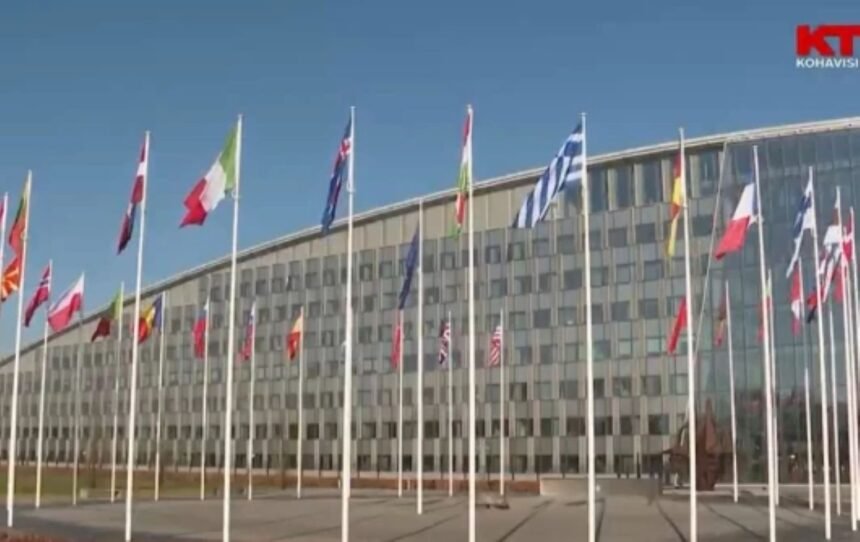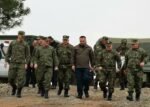On the eve of the NATO Foreign Ministers’ meeting, officials from NATO and the European Union reaffirmed the need for stability and cooperation in the Western Balkans. NATO Deputy Secretary General Radmila Shekerinska, after meeting with the EU envoy for the Kosovo-Serbia dialogue, Peter Sorensen, stated that NATO-EU partnership remains essential for peace in the region.
NATO-EU Cooperation for the Western Balkans
Shekerinska stressed the importance of close coordination between NATO and the EU, emphasizing that this cooperation is crucial for stability in the Balkans. Sorensen, in turn, expressed eagerness to strengthen this collaboration, signaling a continued commitment to advancing the Kosovo-Serbia normalization process.
In March, NATO Secretary General Mark Rutte visited Kosovo and underlined that dialogue between Kosovo and Serbia remains the only path to resolving outstanding issues. He also linked regional stability to Kosovo’s aspirations for NATO membership.
Kosovo-Serbia Dialogue and Implementation Challenges
EU foreign policy chief Kaja Kallas acknowledged criticisms of the current dialogue format and, together with Sorensen, is exploring ways to make it more effective. However, Sorensen’s first visits to Pristina and Belgrade confirmed that the two sides remain far apart in their positions.
Kosovo continues to reject the draft statute for the Association of Serb-majority Municipalities, insisting on the full implementation of all agreements, while Serbia conditions normalization on the establishment of the Association. Political analyst Lulzim Veliu believes that Sorensen’s appointment may yield better results than his predecessor, Miroslav Lajčák.
“Sorensen has extensive experience in the region and could help facilitate agreements. However, it will take time before the dialogue gains clear direction, especially given the absence of a new government in Kosovo following elections,” Veliu said.
Pressure on Both Sides to Fulfill Obligations
Veliu highlights that Euro-Atlantic cooperation remains essential, and both sides will face increased pressure to meet their commitments. He suggests that Kosovo’s next government will be urged to address the Association issue in line with the Constitution, while Serbia will be pressed to halt its campaign against Kosovo’s statehood and allow its integration into international organizations.
Meanwhile, Kosovo President Vjosa Osmani has stated that the EU-proposed draft statute is flawed and would not pass Constitutional Court review.
Stalemate in Dialogue After the Banjska Attack
High-level Kosovo-Serbia talks have been stalled since September 2023, when Kosovo Prime Minister Albin Kurti and Serbian President Aleksandar Vučić last met in Brussels. Just days after that meeting, the Banjska terrorist attack occurred, in which Kosovo Police Sergeant Afrim Bunjaku was killed. A prosecution indictment confirmed Serbia’s involvement in organizing the attack, further complicating relations between the two countries.
With significant challenges in agreement implementation and a stalled dialogue, it remains to be seen whether Sorensen’s appointment and enhanced NATO-EU cooperation will lead to concrete steps toward stability in the Western Balkans.







